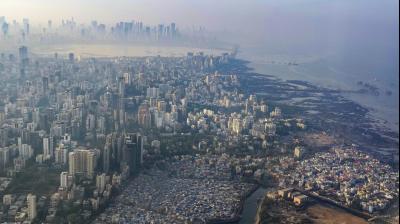Have licence, still dance bars face music
Nearly a month after the Supreme Court ordered that dance bars in the city be reopened, none of the licenced bars have made a full comeback.
Nearly a month after the Supreme Court ordered that dance bars in the city be reopened, none of the licenced bars have made a full comeback. The reason cited by the owners of the three bars, which were issued licences, was police harassment.
On May 12 this year, the Mumbai police issued fresh licences to three bars in the city — Indiyana Bar, Airo Punjab and Sai Prasad. These licenses granted the bars permission to function again, but none of these bars are fully operational. Owners and bar managers allege that they routinely face police interference and harassment.
“The police makes its rounds almost thrice a day. This scares off the customers who think it is risky and dangerous to be found sitting in a dance bar,” said an employee of the Indiyana dance bar.
Indiyana, a popular bar, is located in Tardeo and is one of the bars, which have been issued a licence under the newly-enacted Maharashtra Prohibition of Obscene Dance in Hotels, Restaurants and Bar Rooms and Protection of Dignity of Women Act, 2016. “We did function for a few days after the licence was issued, but had to stop as the customers would leave when they saw the police inside,” said a person working at Aero Punjab.
A visit to Indiyana bar showed that police officers indeed made such visits. “Four tables were vacated within the 10-minute visit of an assistant police inspector,” said an employee of the bar.
Sources in the dance bars also alleged that policemen recorded videos of the ongoings at the bar. “The section of the bar, which only serves alcohol, is also suffering loss of patrons because of this constant interference,” said an Indiyana employee.
Another person alleged that sometimes policemen send informers who then call the police citing some illegal activity in the bar, following which the bar is raided.
Highly-placed sources in Indian Hotel and Restaurant Association (AHAR) said that following the police harassment, bar owners have been instructed not to open shop. “Despite collecting nearly Rs 2 lakh from bar owners for licences, the police is trying to bulldoze us. Its stance is clear that it does not want us to function,” said a member on condition of anonymity.
Data obtained by The Asian Age shows that since April, the Social Service Branch (SSB) of the enforcement wing of the Mumbai police has raided 12 dance bars in the city. The officials have further arrested nearly 290 people from such bars. “Most of the bars that faced raids have not been issued licences but we have been issued a proper license and can function but are still unable to because of police interference,” said a source from one of licenced bars.
Members of AHAR said they would take up the matter in the next Supreme Court hearing. “The Supreme Court has ordered a stay till July 7 on the new act," said a member of AHAR on condition of anonymity.
The Mumbai police on the other hand is planning to take up the issue of many bars that were operating illegally and a few of the employees having criminal antecedents. “During the hearing of the case, the bar owners had informed the apex court that they would not hire anybody with a criminal background. However, some bar owners themselves have criminal cases registered against them,” said a senior officer.
He added that while bar owners do not want to be ruled and regulated under the new act, they have no other legal recourse. “With the new act in place, the previous sections have been automatically repealed,” he added.
In 2005, the then deputy chief minister, late R.R. Patil announced that dance bars in the state would be shut with immediate effect. This move was ordered following alleged complaints that dance bars were corrupting the youth. Patil had said that dance bars were also creating havoc in rural Maharashtra. Following this, the government ordered a complete ban.


















